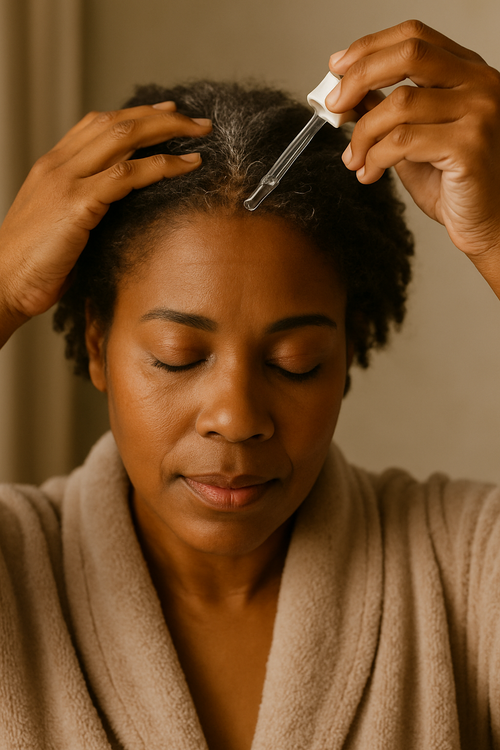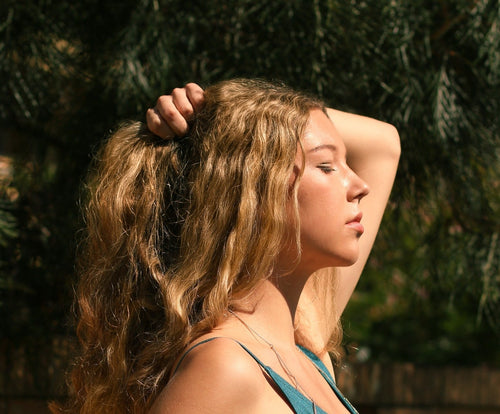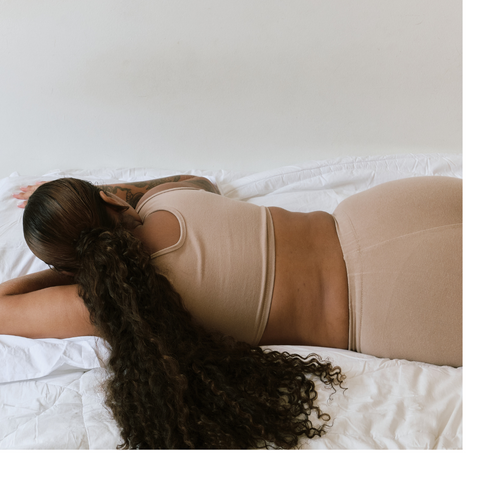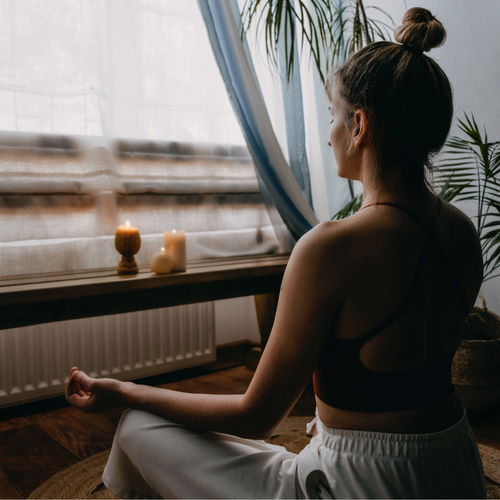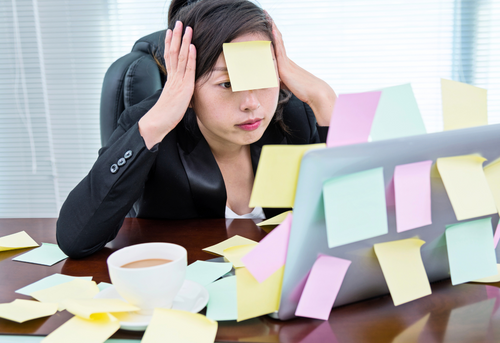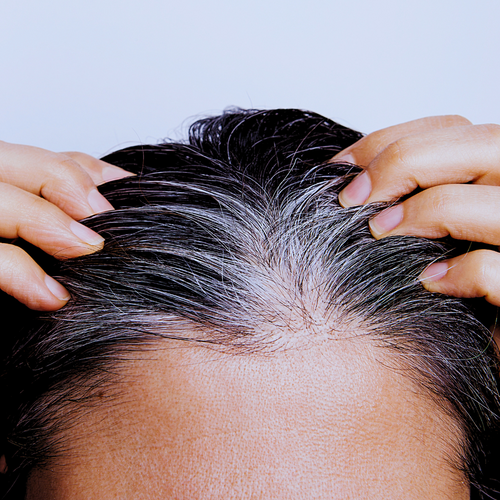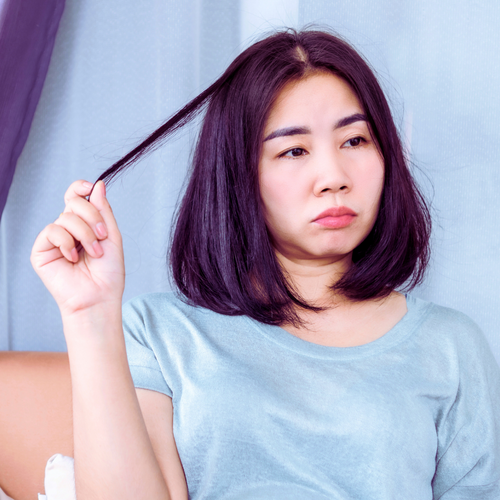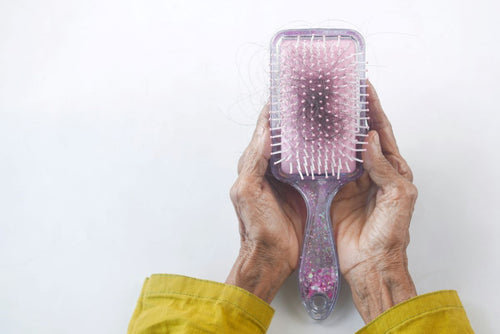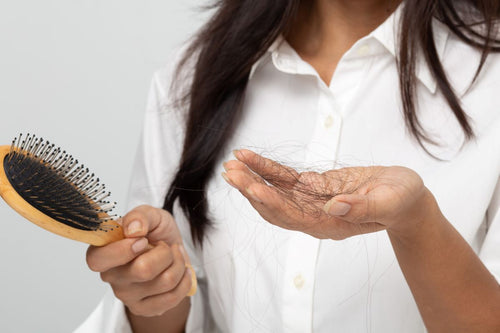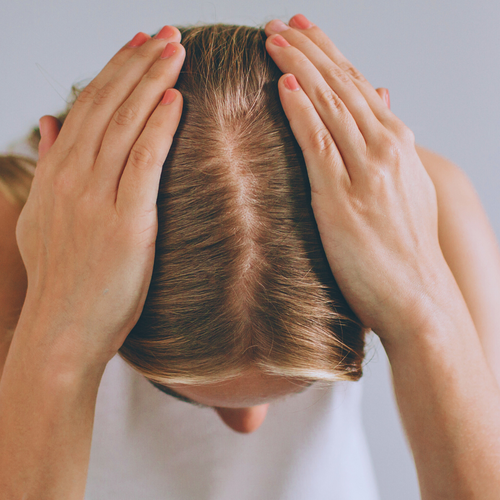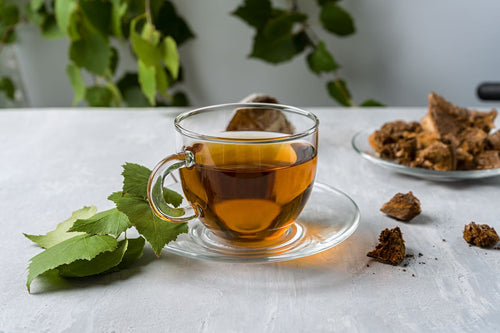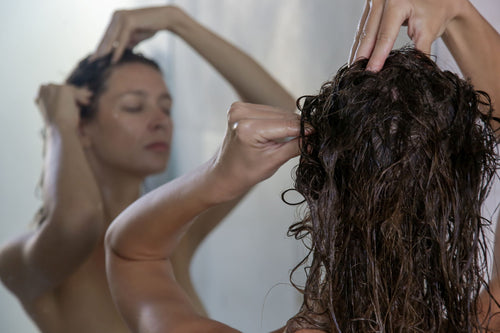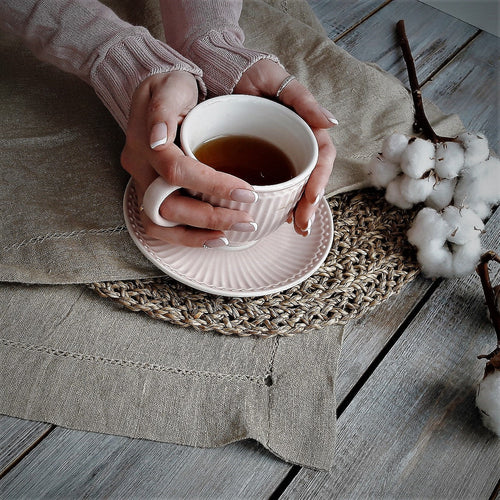An itchy scalp can be a bothersome and sometimes embarrassing problem, leading to discomfort and frustration. While occasional itching is normal, persistent itchiness may be a sign of an underlying issue.
In this comprehensive guide, we’ll explore the common causes of an itchy scalp, delve into effective remedies, discuss best practices for at-home scalp care, and give recommendations on when to seek professional evaluation. Whether you're dealing with a mild itch or a more severe condition, this article aims to empower you with knowledge to achieve a healthier, itch-free scalp.
Common Causes of Itchy Scalp
1. Dry Scalp
Sometimes, your scalp can get really dry, like when your skin needs more moisture. This lack of moisture can lead to flakiness and itching. It often happens because of harsh weather, harsh shampoos, or the use of drying hair products with harsh chemicals. To fix it, you'll want to use a shampoo and conditioner that adds moisture back to your scalp. Also, remember that hot water can make it worse, so stick to lukewarm showers. Natural oils like argan and jojoba oils are really helpful for keeping the scalp supple and hydrated.
2. Dandruff
You've probably heard of dandruff. It's when your scalp gets all flaky and itchy, and it's often linked to a yeast called Malassezia. Stress, not eating well, or not washing your hair enough can make it worse. Seborrheic dermatitis, a type of inflammatory dandruff, can cause red, itchy, and greasy scales on your scalp. To tackle dandruff, grab yourself an anti-dandruff shampoo with ingredients like ketoconazole, selenium sulfide, or pyrithione zinc. And don't forget to keep up with regular hair washing and a balanced diet. Seborrheic dermatitis is a very common condition, and a dermatologist can help get you on the right track to healing.
3. Psoriasis
Psoriasis is a long-term skin condition that can affect your scalp, causing red, scaly patches and intense itching. It’s a type of autoimmune condition, which leads to a build-up of skin cells. Stress or infections can trigger flare-ups. If you suspect you have psoriasis, don't hesitate to see a dermatologist. They can recommend medicated shampoos, topical treatments, or stronger systemic medications to help you manage it.
4. Allergies or Sensitivities
Sometimes, your scalp can get itchy because it's not happy with certain hair products or ingredients. Things like fragrances, preservatives, and dyes can be the culprits. Phthalates, formaldehydes, phenols, and parabens are all chemical classes common in scalp and hair products that have been linked to cancer, allergies, and endocrine disruption. So, be a label detective and look for clean, plant derived products, or go for hypoallergenic formulas. And if you're trying something new, do a patch test first.
5. Lice Infestation
Ugh, lice! These tiny insects can infest your scalp and cause some seriously intense itching. They're definitely contagious, so watch out. To get rid of them, you'll need specialized treatments and a good dose of patience. Make sure to wash your bedding and clothing in hot water, too.
6. Atopic Dermatitis (Eczema)
Atopic dermatitis, often simply called eczema, is a skin condition that can extend to the scalp. It can make your skin dry, red, and incredibly itchy. If you have a history of allergies or a family history of eczema, you might be more prone to it. Managing atopic dermatitis on the scalp can be challenging, but it's not impossible. Gentle, hypoallergenic shampoos and conditioners can help. Additionally, your dermatologist may recommend topical corticosteroids or other medications to alleviate the itching and inflammation. It's essential to avoid scratching, as it can worsen the condition and potentially lead to infections.
7. Hair Products
Sometimes, the very products we use to beautify our hair can turn against us. Hair sprays, gels, and certain styling products may contain ingredients that can irritate your scalp, leading to itching and redness. If you've recently changed your hair care routine or started using new products and noticed itching, it's a good idea to investigate the ingredient list. Look out for common irritants like sulfates, fragrances, and alcohol. You can switch to clean, plant-based products and look for milder, hypoallergenic hair products and give your scalp a break from excessive styling. If the itching persists, consult a dermatologist to identify the specific allergen or irritant causing the issue and for personalized advice on suitable alternatives.
Remedies for Itchy Scalp
Over-the-Counter Shampoos
For mild itching, you can find shampoos with salicylic acid, coal tar, pyrithione zinc, or ketoconazole at your local store.
Natural Remedies
If you prefer a natural approach, you can try things like aloe vera gel or diluted apple cider vinegar rinses. Regular use of an adaptogenic scalp serum on the scalp can help soothe irritation and itching and calm a tight, dry scalp.
Prescription Medications
For the tougher cases, it's best to visit a dermatologist. They might prescribe medicated shampoos, topical steroids, or even oral medications to help you out.
Best Practices for At-Home Scalp Care
Gentle Cleansing
When it comes to cleaning your scalp, be gentle. Opt for a mild, sulfate-free shampoo during your hair wash routine. When washing, use your finger pads (not your nails) to gently massage your scalp. Don’t scrub with your nails, as this can further irritate an itchy scalp.
Balanced Diet
Think of your diet as fuel for your scalp. Load up on foods rich in vitamins and minerals, especially those omega-3 fatty acids. They're like a treat for your scalp, helping to keep it in tip-top shape.
Hydration
Staying hydrated isn't just good for your body; it's great for your scalp too. Proper hydration is like the secret sauce for maintaining healthy skin, and that includes your scalp. So, keep that water bottle handy and sip away.
Stress Management
We all deal with stress, but did you know it can be a real troublemaker for your scalp? Stress can actually make scalp issues worse. It can also lead to hair loss. So, consider some stress-busting techniques like meditation, yoga, or even deep breathing exercises.
When to Seek Professional Evaluation
While many cases of itchy scalp can be managed at home, there are situations where professional evaluation is necessary:
Persistent Symptoms:
If your scalp itchiness persists despite home remedies and lifestyle changes, visit a dermatologist.
Severe Symptoms:
If you experience severe redness, or any swelling or pain, seek immediate medical attention, as it could be a sign of a more serious condition.
Hair Loss:
If you notice excessive hair loss along with itching, visit a healthcare provider, as it may indicate an underlying issue.
Summary
An itchy scalp can significantly impact your comfort and confidence. By understanding the common causes, exploring effective remedies, and adopting good at-home scalp care, you can take control of your scalp health. Remember that while home care can address many issues, a professional evaluation is crucial for persistent or severe symptoms. With the right knowledge and care, you can bid farewell to an itchy scalp and enjoy the comfort of a healthy head of hair.


